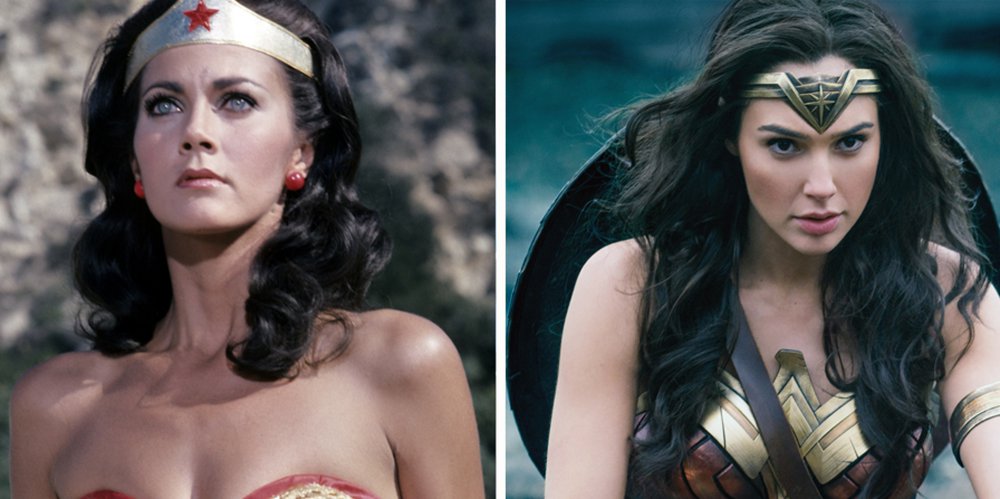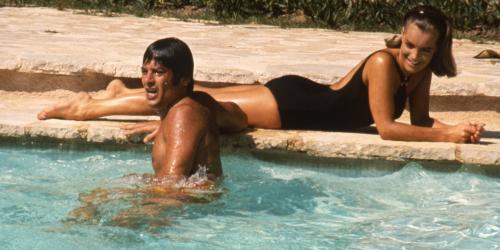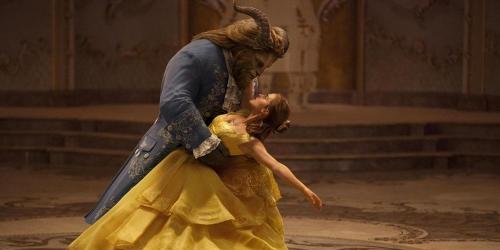As a princess of the Amazons or as a fighting warrior, Wonder Woman has inspired more than one generation of women. Back on 80 years of feminist history and commitment.
Wonder Woman at Its Beginning
Born of the imagination of the American psychologist, inventor and writer William Moulton Marston in the late 1930s, Wonder Woman took his first steps in the form of a comic strip in the United States in 1941. With a record sales figure of 2.5 million copies, the "comics" - published under the pseudonym Charles Moulton - remains one of the greatest successes of all time. In 1942, the writer in favor of gender equality emerged on her true identity: "Wonder Woman is psychological propaganda for the new type of women, who in my opinion should lead the world" , he wrote.
If Wonder Woman aka Princess Diana draws on certain characteristics from Greek mythology, it would appear that the American psychologist was inspired by Margaret Sanger (a women's rights activist and originator of family planning) and the two women who shared William Moulton Marston lived under the same roof with his wife, Elizabeth Holloway Marston, as well as his other partner Olive Byrne and their four children.
In 1947, the author dies and leaves Wonder Woman orphan: the comic book will be reborn in 1975 in the form of a television series.
Wonder Woman incarnated by an emblematic actress
For four years and sixty episodes, the actress Lynda Carter takes the blue and red star of the Princess of the Amazons in "The new adventures of Wonder Woman". The success is there: children love it, women admire it and men are not insensitive to the charm of the old Miss World USA. The American actress has a slim silhouette, jet black hair and azure blue eyes fulfills the role perfectly and remains - still today - the face associated with the mythical Wonder Woman.
In 2011, NBC is trying to revive the series with Adrianne Palicki in the title role. In vain, after the shooting of a pilot episode, the project is abandoned.
Wonder Woman, a timeless but controversial heroine
Wonder Woman is the first female character to be put forward in a comic. A symbol of the emancipation of women, Wonder Woman has marked many generations. Throughout the years, the character remains unavoidable for pop culture as well as for the representation of feminism. In the mid-1960s, some changes were made to heroin history.
Indeed, its origin is rewritten and its powers are henceforth inherited from Greek and Roman deities. Far from being unanimous, many criticize these changes and prefer the original version. This is not the only aspect of Wonder Woman that has been undermined. Subsequently, critics accuse the series of promoting a heroine to "perfect measurements".
Yet these comments have not prevented the United Nations (UN) a from celebrating Wonder Woman in its international campaign for the empowerment of women and girls in 2016. At a time when the equality between men and women is not yet there, Wonder Woman is a model for both her strength and her courage.
Wonder Woman 2.0 performed by Gal Gadot
Change of face for the mythical Wonder Woman. For the first feature film entirely devoted to heroin, it is the actress and Israeli model Gal Gadot who will embody on the screen Wonder Woman. If the role could have intimidated more than one, the actress did not hesitate a second when offered the role. Aware of the work that awaited her, the young woman said, "Incarnating Wonder Woman was like climbing Everest, sometimes wondering where to start to reach the summit." At only 32 years old, Gal Gadot is (almost) a regular of the character since she has already interpreted it in "Batman v Superman: Dawn of Justice".
Embodying Wonder Woman was like climbing Everest
Critically acclaimed, the film was also entitled to its dose of controversy. In Lebanon, the Ministry of the Interior decided to ban "Wonder Woman" because of the origin and position of the actress in favor of the Israeli soldiers. "I send my love to all Israeli citizens, especially those boys and girls who risk their lives to protect my homeland from the horrific acts of Hamas, which hides behind women and children, she had posted on Facebook in 2014.
And this is not the first time the film has been talked about. During the broadcast of the third trailer, Internet users had risen against the "perfect epilation" of Wonder Woman's armpits. A debate that quickly ended especially when the journalist of "Thenational review", Katherine Timpf explained: "There is no debate about the physique of Wonder Woman because she is like DC Comics imagined it in 1941. She has always crushed her opponents and has always had the underarms shaved. If you do not like her, invent your own hero who does not shave.


